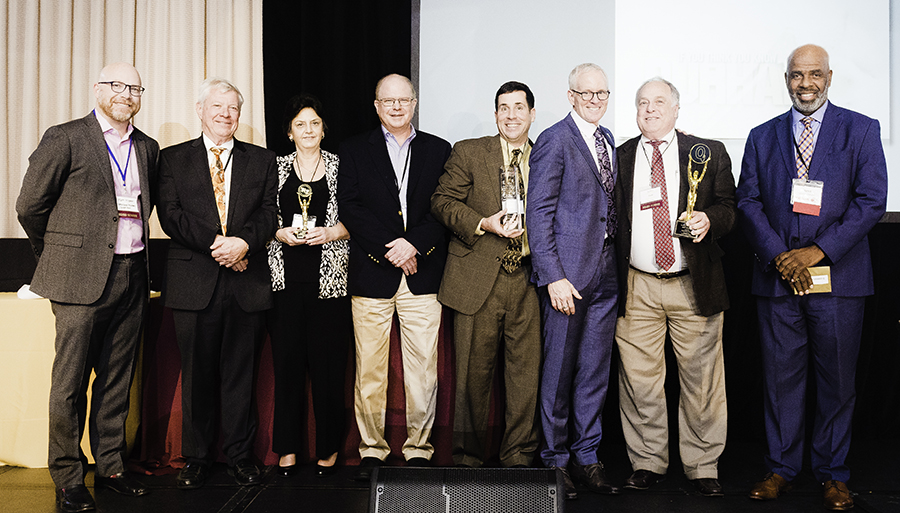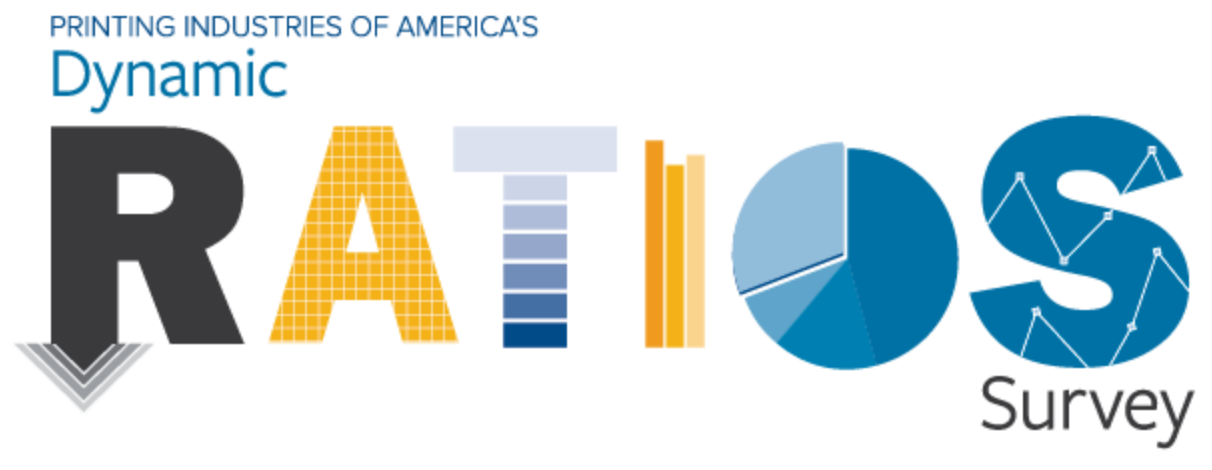Supreme Court Ruling
Printing Industries of America (PIA) recently released a statement about the Supreme Court ruling in Masterpiece Cakeshop Ltd. v. Colorado Civil Rights Commission. In the statement below, PIA provides an explanation of how it could impact printers regarding their right to refuse service to a customer.
On Monday, the United States Supreme Court decided that a Colorado baker had the right to refuse service to customers based on his sincerely held religious beliefs. The Court very specifically based its decision on the fact that the Colorado Civil Rights Commission did not fairly and impartially enforce Colorado's anti-discrimination law that bars discrimination against sexual orientation and religion.
Because the Court's decision is quite narrow, it does not provide carte blanche permission to refuse service in the name of religious freedom pursuant to the First Amendment. The Court limited the breadth of its decision to occasions when there is a demonstrated failure to remain neutral when weighing civil rights against the free exercise of religion. Masterpiece Cakeshop Ltd. v. Colorado Civil Rights Commission, Slip Opinion No. 16-111 (U.S.S.C. June 4, 2018).
For printers, the question about whether a company can refuse a customer's business arises most commonly in the context of doing work for controversial customers or on controversial subjects. The first step is to consider whether the customer is in a class protected by the Civil Rights Act, the Americans with Disabilities Act, or the Age Discrimination in Employment Act. These statutes prohibit discrimination based on race, religion, gender, sexual orientation, national origin, age, and mental or physical disability, and customers who are refused service based on these characteristics could sue and may win a judgment against the printer.
If the customer is not in a protected class, then the printer may refuse service. For example, if the customer wanted the printer to create packaging for a product that had been tested on animals, and the printing company does not want the job due to that practice, the printer can refuse service because companies that use animal testing do not fall within a protected class.
For questions on this issue, contact Printing Industries of America's Director of Human Relations, Adriane Harrison, for assistance at 412-259-1707 or This email address is being protected from spambots. You need JavaScript enabled to view it..
Source: Printing Industries of America.
PGAMA Excellence in Print 2018
Congratulations to all the 2018 EIP Winners!

Want to see all the photos? Click here.
HIGHEST HONORS
Grand Q sponsored by Xerox:
Schmitz Press
Digital Q sponsored by Canon:
Printing Specialist Corporation
Binding & Finishing Q sponsored by Standard Graphics:
Worth Higgins & Associates Inc.
SPECIAL AWARDS
Best Performance sponsored by Heidelberg:
Schmitz Press
Best Use of Color sponsored by Braden Sutphin Ink:
McClung Companies
Best Use of Paper sponsored by Lindenmeyr-Munroe:
Worth Higgins & Assoc. Inc.
Judges’ Choice sponsored by Prisco:
Printing Specialist Corporation & Schmitz Press
People’s Choice sponsored by K&W finishing, inc.:
Chromagraphics
Best Use of Photography sponsored by Solnet Network & Web:
Graphtec
Best Use of Design sponsored by K&W finishing, inc:
MOSAIC
Designers Choice sponsored by Atlantic Graphic Systems:
Graphtec
Spirit of Excellence sponsored by MCS:
Strategic Factory
Best 4 Color Reproduction sponsored by CardConnect:
Printing Specialist Corporation
BEST OF CATEGORY
Bindagraphics, Inc. Die Cutting
Bindagraphics, Inc. Vinyl Binders
Chromagraphics, Inc. Announcements and Invitations Digital
Chromagraphics, Inc. Books: Paper Covered Digital
Chromagraphics, Inc. Folders, Presentation Kits & Portfolios Digital
Chromagraphics, Inc. Folders, Presentation Kits & Portfolios Process
Chromagraphics, Inc. Miscellaneous Process
Chromagraphics, Inc. Newsletters Process
Chromagraphics, Inc. Postcards & Self-Mailers Process
Colortree Group Web Press Printed Piece Heat Set Process
Copy General Greeting Cards Digital
Doyle Printing & Offset Calendars Digital
Doyle Printing & Offset Posters Digital
Gamse Lithographing Co. Labels (printed—sheetfed) Non-Process
Gamse Lithographing Co. Labels (printed—sheetfed) Process
Gamse Lithographing Co. Labels (printed—web) Digital
Gamse Lithographing Co. Labels (printed—web) Process
Graphtec Annual Reports Digital
Graphtec Art Reproductions Digital
Graphtec Booklets: Small, up to 6x9 Process
Graphtec Books: Case Bound Digital
Graphtec Catalogs—Company Capabilities Process
Graphtec Catalogs—Product-Oriented Digital
Graphtec Unique Direct Mail Solutions Digital
Graphtec Unique Direct Mail Solutions Process
Heritage Printing & Graphics Magazines Digital
Heritage Printing & Graphics Printers’ Self-Advertising
Heritage Printing & Graphics Wide Format - Unique Substrates
Heritage Printing & Graphics Wide Format - Wraps
K & W finishing, inc. Laser Cutting
K & W finishing, inc. Stamping/Embossing/Die-Cutting Combo
Kenmore Envelope Co Envelopes Process
MOSAIC Booklets: Small, up to 6x9 Digital
MOSAIC Brochures & Pamphlets Process
MOSAIC Calendars Process
MOSAIC Catalogs—Company Capabilities Digital
MOSAIC Impossible Job Process
MOSAIC Maps Digital
MOSAIC Printers’ Self-Advertising Process
Mount Vernon Printing Co. Booklets: Small, up to 6x9 Non-Process
Mount Vernon Printing Co. Catalogs—Product-Oriented Process
Peabody Press Announcements and Invitations Process
Printing Specialist Corporation Booklets: Large, over 6x9 Digital
Printing Specialist Corporation Brochures & Pamphlets Digital
Printing Specialist Corporation Catalogs—Institutional Digital
Printing Specialist Corporation Packaging Digital
Printing Specialist Corporation Postcards & Self-Mailers Digital
Printing Specialist Corporation Printers’ Self-Advertising Digital
Printing Specialist Corporation Stationery - Individual or Matched Sets Digital
Raff Embossing & Foilcraft Stamping
Schmitz Press Art Reproductions Process
Schmitz Press Books: Case Bound Non-Process
Schmitz Press Books: Paper-Covered Non-Process
Schmitz Press Catalogs—Institutional Process
Schmitz Press Inserts, Circulars & Flyers Process
Schmitz Press Miscellaneous Digital
Schmitz Press Packaging Non-Process
Schmitz Press Posters Process
Schmitz Press Programs Process
Schmitz Press Stationery - Individual or Matched Sets Non-Process
SGM Bindery, Inc. Finishing/Binding
Solnet Network & Web Website Design
Strategic Factory Sales Campaigns Digital
Strategic Factory Wide Format - Displays
Strategic Factory Wide Format - Unique Application/Installation
Tri-State Printing Point-of-Purchase Material Digital
Tri-State Printing Programs Digital
Westland Printers Booklets: Large, over 6x9 Process
Westland Printers Books: Case Bound Process
Westland Printers Books: Paper-Covered Process
Westland Printers Envelopes Non-Process
Westland Printers Greeting Cards Process
Westland Printers Packaging Process
Williams & Heintz Map Corp. Maps Process
Worth Higgins & Associates, Inc. Announcements and Invitations Non-Process
Worth Higgins & Associates, Inc. Annual Reports Process
Worth Higgins & Associates, Inc. Embossing
Worth Higgins & Associates, Inc. Greeting Cards Non-Process
Worth Higgins & Associates, Inc. Letterpress
Worth Higgins & Associates, Inc. Magazines Process
Worth Higgins & Associates, Inc. Point-of-Purchase Material Process
Worth Higgins & Associates, Inc. Sales Campaigns Process







